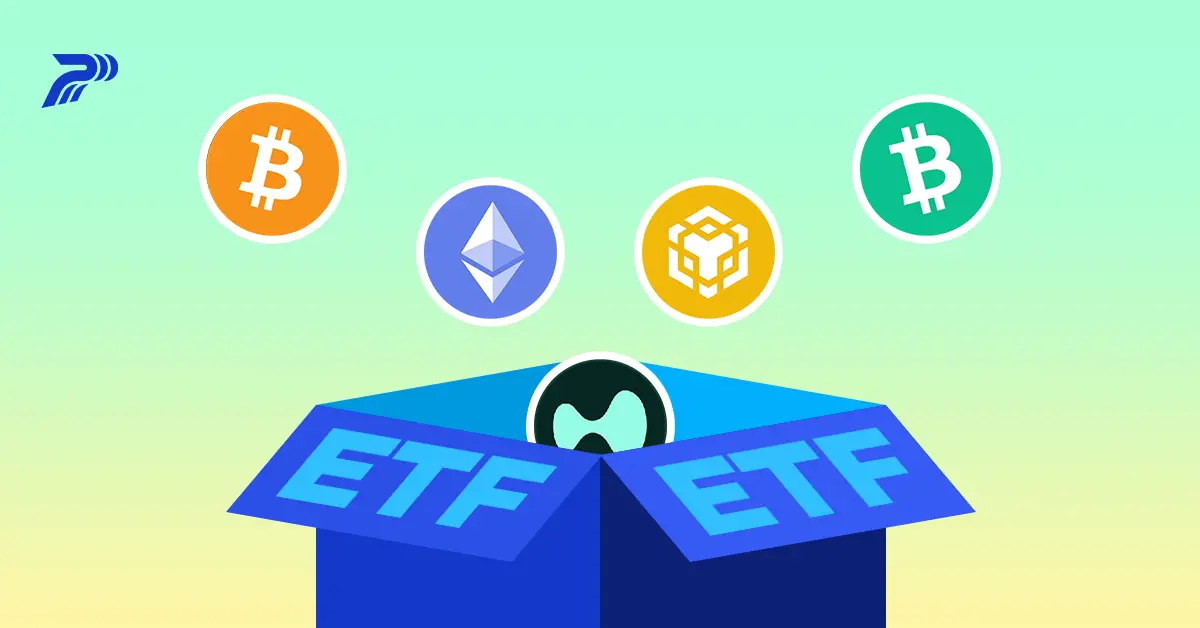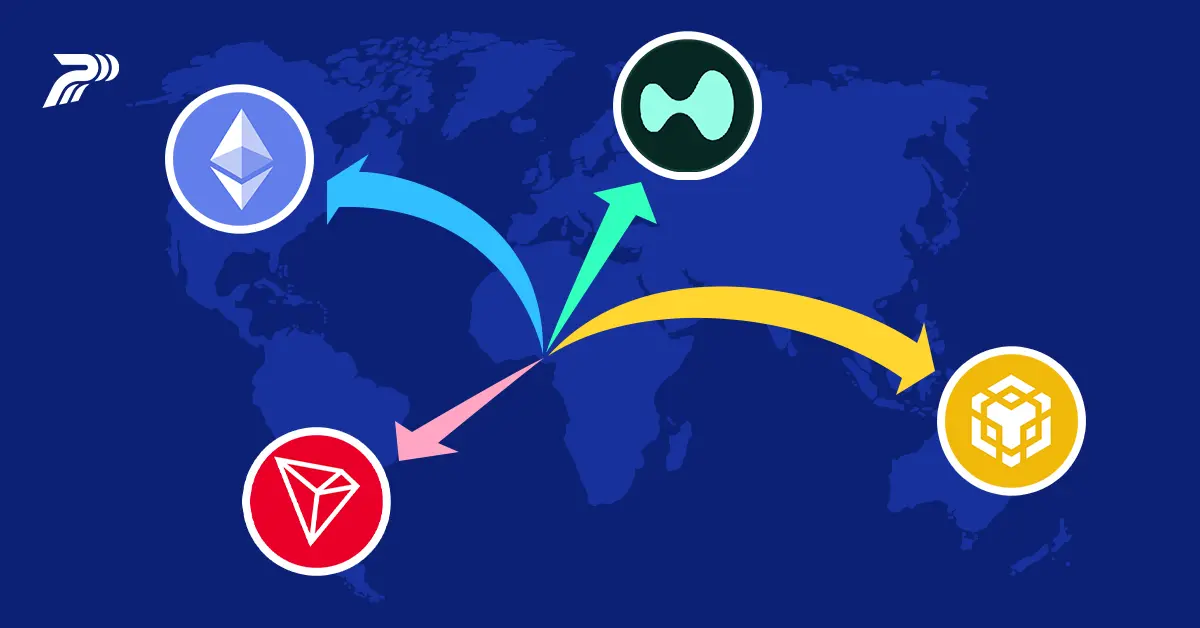Why Crypto ETFs Are the Talk of the Town
The rise of cryptocurrency ETFs has created a new bridge between traditional finance and the fast-growing world of digital assets. But beyond the hype, what does the question “what is cryptocurrency etf” actually mean for you as a Nigerian investor? And is it better than trading crypto directly? Well, let’s break it down.
What Is Cryptocurrency ETF and How Does It Work?
A cryptocurrency ETF (Exchange-Traded Fund) works by tracking the price of one or more digital assets, most commonly Bitcoin or Ethereum, and packaging that exposure into a regulated investment product you can buy and sell on a stock exchange.
Instead of holding crypto directly, the ETF:
-
Buys the underlying asset (in a spot ETF) or uses futures contracts (in a futures ETF).
-
Splits ownership into shares.
-
Lets investors trade those shares just like they would with stocks.
This means:
-
No need for private keys, wallets, or security headaches.
-
Regulated oversight from bodies like the U.S. SEC or Canada’s OSC.
-
Easy integration into a traditional portfolio.
How Many Crypto ETFs Are There?
As of Q1 2025, the number of cryptocurrency ETFs has grown sharply:
-
U.S.: Over 14 spot Bitcoin ETFs and several futures-based ones.
-
Canada: Multiple Bitcoin and Ethereum ETFs since 2021 (the world’s first).
-
Europe: Dozens of crypto ETPs (exchange-traded products) across Germany, Switzerland, and the UK.
-
Asia-Pacific: Australia and Hong Kong have approved both spot and futures-based ETFs.
📌 Fact check: According to the Nigerian Exchange Group (NGX), there are no crypto ETFs listed locally as of 2025, due to CBN restrictions on crypto-linked securities.
Understanding Spot and Futures Crypto ETF
– Futures
A futures-based crypto ETF doesn’t hold actual crypto. Instead, it invests in futures contracts—agreements to buy or sell crypto at a future date.
Pros:
-
Regulated and exchange-traded.
-
No direct handling of crypto.
Cons:
-
May not perfectly match spot prices due to “contango” or “backwardation” in futures markets.
-
Often has higher management fees.
– Spot
A spot ETF holds the actual cryptocurrency in secure custody. For example, a spot Bitcoin ETF buys and stores real BTC on behalf of its investors.
Why it matters:
Spot ETFs track Bitcoin’s market price more accurately than futures ETFs, making them the preferred choice for long-term investors.
Advantages of Crypto ETFs
A cryptocurrency ETF offers several benefits that make it appealing to investors, especially those who want exposure to digital assets without the complexity of owning them directly. Here’s a detailed breakdown of it’s blessings:
1. Regulated Exposure to Crypto
Unlike unregulated crypto exchanges, ETFs operate under the supervision of recognized financial regulators such as the U.S. SEC or Canada’s OSC.
This means the fund must follow strict transparency, reporting, and investor protection rules, reducing the risks of scams or sudden platform shutdowns.
2. No Custody or Security Risks
Owning crypto directly requires secure wallets, private key management, and protection against hacking. Many investors have lost funds through exchange breaches or forgotten passwords.
With an ETF, the asset is securely stored by professional custodians, and you only manage your brokerage account login.
3. Easier Access via Traditional Brokers
If you already have a stock brokerage account, buying a crypto ETF is as simple as purchasing shares of a company like Apple or Dangote Cement.
There’s no need to set up new exchange accounts, verify wallets, or convert currencies, making it beginner-friendly.
4. Portfolio Diversification
Some ETFs track a basket of cryptocurrencies, offering exposure to multiple coins in a single purchase.
This reduces the risk of holding only one volatile asset and allows investors to spread their bets across different blockchain projects.
5. Fits Into Retirement and Institutional Portfolios
Because ETFs are listed on traditional exchanges, they can be included in pension funds, mutual funds, and retirement accounts.
For institutional investors, this opens the door to crypto exposure without breaking compliance rules.
Disadvantages of Crypto ETFs
While crypto ETFs offer convenience, they also have drawbacks that can limit their appeal, especially for investors in emerging markets like Nigeria.
1. Management Fees Eat Into Returns
Most ETFs charge an annual management fee, typically between 0.2% and 1%.
While this might sound small, it compounds over time, reducing long-term gains compared to holding the underlying crypto directly.
2. You Don’t Actually Own the Cryptocurrency
ETF investors hold shares of the fund, not the actual coins.
This means you can’t:
-
Transfer the crypto to a personal wallet
-
Use it for payments or DeFi staking
-
Benefit from on-chain opportunities
3. Price Volatility Still Applies
An ETF’s value is directly tied to the price of its underlying crypto.
So if Bitcoin drops 15% in a week, the ETF will likely follow the same pattern—regardless of its regulated structure.
4. Geographic and Regulatory Limitations
Not every country allows access to crypto ETFs.
For example, the Nigerian Exchange (NGX) currently lists no crypto ETFs due to Central Bank restrictions, meaning local investors must use offshore brokers if they want exposure.
5. Possible Tracking Errors
Some ETFs, especially futures-based ones, may not perfectly match the real market price of the underlying crypto due to contract rollovers and market conditions.
Over time, this mismatch can lead to underperformance compared to directly holding the asset.
“An ETF is a convenient way to gain exposure, but it’s not a substitute for owning the asset if you want the full benefits of cryptocurrency,” — Michael Sonnenshein, CEO of Grayscale Investments.
How Do the Taxes Compare for Crypto ETFs and Direct Crypto Investments?
In countries like the U.S. and UK, ETFs often fall under capital gains tax, similar to stocks. Direct crypto trades can trigger more frequent taxable events.
In Nigeria:
-
The Federal Inland Revenue Service (FIRS) has proposed capital gains tax on digital assets, but the framework is still evolving.
-
Since ETFs aren’t listed locally, Nigerians accessing them abroad would follow the host country’s tax rules.
Is Crypto ETF a Good Investment for Smart Nigerians?
The answer depends on your strategy:
-
If you want regulated, hands-off exposure to Bitcoin or Ethereum, ETFs are attractive—once accessible to Nigerians through compliant brokers.
-
If you want flexibility, instant liquidity, and the ability to send, spend, or stake crypto, direct ownership still reigns supreme.
“Until Nigeria lists its own crypto ETFs, direct P2P crypto trading remains the fastest way for Nigerians to tap into digital asset gains,” says Nduka Okafor, Lagos-based financial analyst.
Alternatives to Cryptocurrency ETFs
While cryptocurrency ETFs offer a regulated and familiar way to gain exposure to digital assets, they are not yet available in Nigeria. Fortunately, smart Nigerian investors have several viable alternatives to consider, each with its own advantages, risks, and practical considerations.
1. Direct Cryptocurrency Ownership
This is the most straightforward alternative; buying actual cryptocurrencies like Bitcoin (BTC), Ethereum (ETH), or stable coins such as USDT.
With direct ownership:
-
You hold the asset in a wallet you control.
-
You can send, receive, or trade without an intermediary.
-
You can take advantage of staking and decentralized finance (DeFi) opportunities.
Many Nigerians use apps like Presto App to sell, receive, and send over 100+ cryptocurrencies instantly at competitive rates, and even convert gift cards to cryptocurrency, without the hidden fees and delays common with traditional platforms.
Key Risks: Price volatility and the need to secure your private keys to avoid hacks or loss.
2. Crypto Index Funds
These are professionally managed funds that track a basket of cryptocurrencies rather than a single coin.
While not widely available from Nigerian institutions, they can be accessed via:
-
Foreign-based crypto investment platforms
-
Blockchain-based tokenized indexes (e.g., DeFi Pulse Index)
Advantages:
-
Diversification reduces the risk of holding just one crypto.
-
Less active management required for the investor.
Drawbacks:
-
Still subject to crypto market swings.
-
Limited liquidity if using blockchain-only index tokens.
3. Crypto Trusts (e.g., Grayscale Bitcoin Trust – GBTC)
Crypto trusts are investment vehicles that hold cryptocurrency and allow investors to buy shares representing that holding.
Nigerians can sometimes access them via international brokerages.
Pros:
-
Professionally managed with secure custody.
-
Regulated in the country where they are offered.
Cons:
-
Premiums or discounts compared to actual crypto prices.
-
Limited access for Nigerian retail investors due to regulatory barriers.
4. Cryptocurrency Futures
Futures contracts allow investors to speculate on the price of a cryptocurrency without owning it.
In Nigeria, direct access is limited to crypto exchanges that offer derivatives trading, such as Binance or Bybit.
Advantages:
-
Ability to profit in both rising and falling markets.
-
Leverage can amplify returns.
Disadvantages:
-
High risk, especially with leverage.
-
Requires skill and experience to avoid losses.
5. Blockchain & Crypto-Related Stocks
Instead of buying crypto directly, investors can buy shares in companies involved in blockchain technology or crypto mining.
Examples include:
-
Publicly listed mining companies
-
Blockchain infrastructure providers
-
Payment processors integrating crypto
For Nigerian investors, these are typically accessible via foreign stock trading platforms.
6. Peer-to-Peer (P2P) Crypto Trading
P2P platforms allow Nigerians to buy and sell cryptocurrencies directly with other individuals, often in Naira, using local payment methods. This option is especially popular because it bypasses certain banking restrictions.
Advantages:
-
Local currency transactions.
-
Wide variety of payment methods.
Risks:
-
Potential for scams — always use reputable, escrow-enabled platforms like Presto for safe transactions.
7. DeFi (Decentralized Finance) Protocols
DeFi platforms let you lend, borrow, or earn yields on crypto holdings without intermediaries.
For example, Nigerians can use stablecoins to earn interest via DeFi lending protocols.
Pros:
-
High potential yields.
-
Full control over assets.
Cons:
-
Smart contract risks and potential platform failures.
-
Requires technical understanding.
To be honest:
Until Nigerian regulators approve crypto ETFs, these alternatives, especially direct crypto ownership and P2P trading, remain the most practical and profitable paths for local investors. With the right tools, such as the Presto App, Nigerians can enjoy fast, secure, and competitive crypto trading without the limits of ETF availability.
And in conclusion? ETFs Are Good, But Speed Wins in Nigeria
Understanding what cryptocurrency ETFs are gives you a clear view of where global finance is heading. But in Nigeria’s fast-paced crypto market, speed, flexibility, and best rates often matter more than regulated wrappers.
That’s where Presto App comes in.
With Presto, you can:
-
Sell 100+ cryptocurrencies instantly.
-
Trade gift cards for cash at unbeatable rates.
-
Get paid in seconds, 24/7.
-
Enjoy trusted local support and top-tier security.
📲 Download Presto App today—because while ETFs wait for approval, smart Nigerians are already cashing out profits in real time.
Frequently Asked Questions About Crypto ETF
Q1: How many crypto ETFs exist?
The exact number of cryptocurrency ETFs changes frequently as new funds launch and others close.
As of Q1 2025:
-
United States → More than 14 spot Bitcoin ETFs plus multiple Bitcoin and Ethereum futures ETFs.
-
Canada → Several Bitcoin and Ethereum ETFs (Canada approved the world’s first Bitcoin ETF in 2021).
-
Europe → Dozens of crypto exchange-traded products (ETPs) in Germany, Switzerland, and the UK.
-
Asia-Pacific → Australia and Hong Kong have both spot and futures-based crypto ETFs.
Note: Nigeria currently has zero crypto ETFs listed locally due to regulatory restrictions.
Q2: Is Bitcoin ETF available in Nigeria?
No, there is no Bitcoin ETF listed on the Nigerian Exchange (NGX) as of 2025.
The Central Bank of Nigeria (CBN) and Securities and Exchange Commission (SEC Nigeria) have not yet approved cryptocurrency-linked ETFs for trading on local exchanges.
Nigerians who want access to Bitcoin ETFs must use:
-
Foreign brokerage accounts that allow international ETF trading.
-
Indirect exposure through foreign-based investment products.
Q3: What are the main advantages of a cryptocurrency ETF?
A cryptocurrency ETF provides:
-
Regulated exposure to crypto assets.
-
No custody risks as the fund handles security.
-
Simple access through regular stock brokers.
-
Diversification if the ETF holds multiple cryptocurrencies.
-
Institutional compatibility for retirement or mutual fund portfolios.
Q4: What are the disadvantages of a cryptocurrency ETF?
The downsides include:
-
Management fees that reduce returns over time.
-
No direct ownership — you can’t withdraw the crypto.
-
Price volatility similar to the underlying asset.
-
Limited local availability in markets like Nigeria.
-
Possible tracking errors in futures-based ETFs.
Q5: Which is better for Nigerians — crypto ETFs or direct crypto investments?
For now, direct crypto trading is better for most Nigerians because ETFs are not locally available. However, ETFs could become an attractive option when approved in Nigeria or easily accessible via regulated offshore brokers.
Q6: How do crypto ETFs actually work?
Crypto ETFs come in two main flavors:
-
Spot ETFs hold the actual cryptocurrency in custody, allowing the ETF’s share price to closely track real-time market value.
-
Futures ETFs don’t hold crypto directly; instead, they invest in futures contracts (agreements to buy/sell crypto later at a set price). This can cause tracking discrepancies due to roll costs and price mismatches.
Q7: What’s the difference between a spot crypto ETF and a futures crypto ETF?
-
Spot ETF: Holds and tracks actual crypto, delivering more accurate pricing.
-
Futures ETF: Uses derivatives and may deviate from spot prices due to market conditions like contango or rollover costs.
Q8: Are crypto ETFs regulated?
Yes, crypto ETFs—especially in markets like the U.S.—are regulated by bodies like the SEC and CFTC. They must adhere to rigorous compliance, reporting, and investor protection rules.
Q9: What are the tracking risks or premium/discount issues with Bitcoin ETFs?
Bitcoin ETFs—especially new spot ones—can trade at premiums or discounts relative to their net asset value due to supply-demand dynamics, creation/redemption mechanics, or liquidity constraints. Research shows these premiums can introduce unexpected liquidity risk for investors.
Q10: What factors should retail investors understand before trading Bitcoin ETFs?
Experts suggest that retail investors should be cautious. They need to understand futures markets for ETF-based strategies, be aware of fee structures, and compare ETFs with direct crypto exposure for performance and flexibility.




